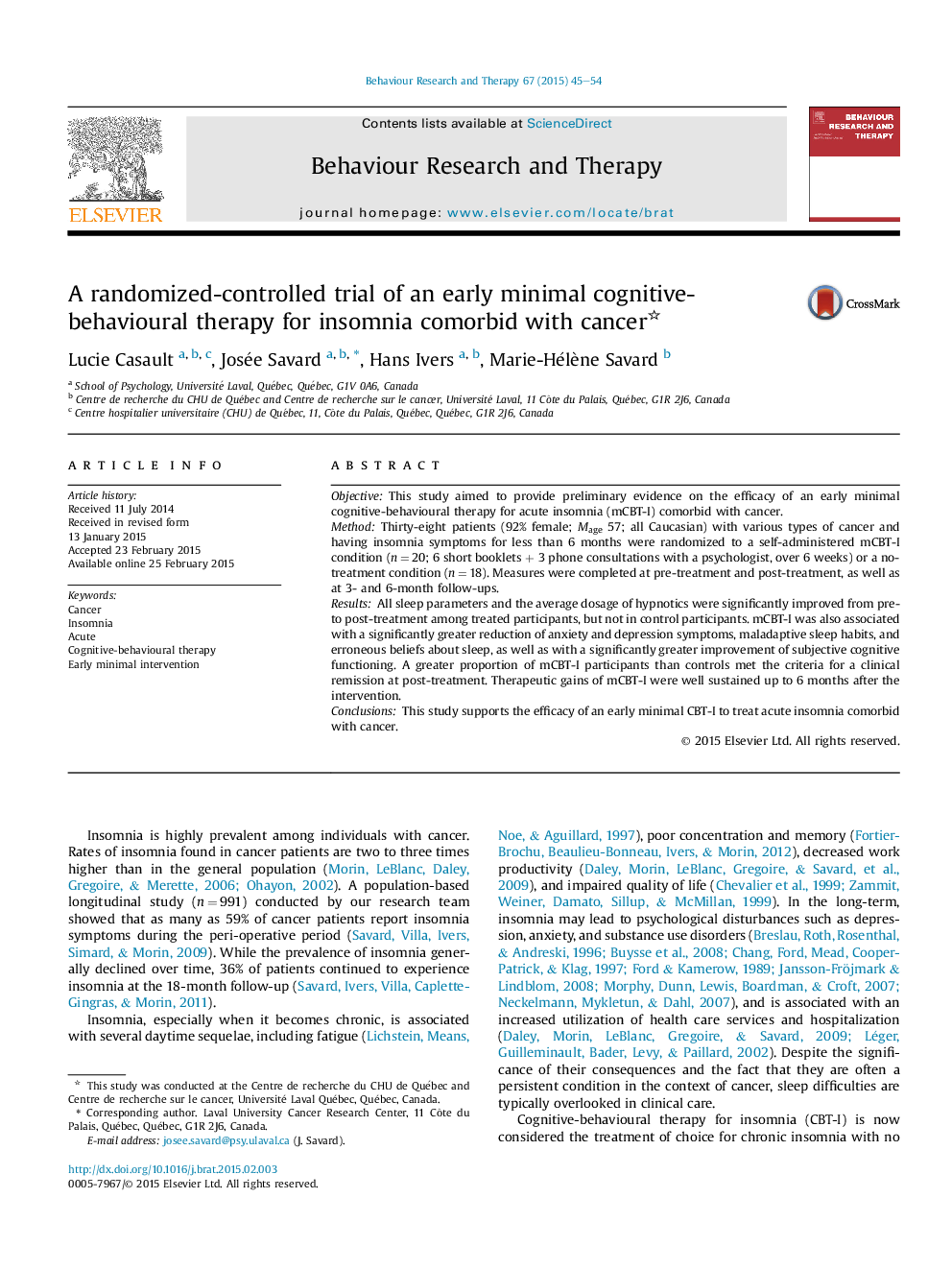| Article ID | Journal | Published Year | Pages | File Type |
|---|---|---|---|---|
| 901825 | Behaviour Research and Therapy | 2015 | 10 Pages |
•Early minimal CBT for acute insomnia is efficacious among cancer patients.•All sleep diary parameters were improved from pre- to post-treatment in the CBT group.•Reductions were also obtained in hypnotic dosage, and levels of anxiety and depression.•Therapeutic gains were well sustained up to 6 months after the intervention.
ObjectiveThis study aimed to provide preliminary evidence on the efficacy of an early minimal cognitive-behavioural therapy for acute insomnia (mCBT-I) comorbid with cancer.MethodThirty-eight patients (92% female; Mage 57; all Caucasian) with various types of cancer and having insomnia symptoms for less than 6 months were randomized to a self-administered mCBT-I condition (n = 20; 6 short booklets + 3 phone consultations with a psychologist, over 6 weeks) or a no-treatment condition (n = 18). Measures were completed at pre-treatment and post-treatment, as well as at 3- and 6-month follow-ups.ResultsAll sleep parameters and the average dosage of hypnotics were significantly improved from pre- to post-treatment among treated participants, but not in control participants. mCBT-I was also associated with a significantly greater reduction of anxiety and depression symptoms, maladaptive sleep habits, and erroneous beliefs about sleep, as well as with a significantly greater improvement of subjective cognitive functioning. A greater proportion of mCBT-I participants than controls met the criteria for a clinical remission at post-treatment. Therapeutic gains of mCBT-I were well sustained up to 6 months after the intervention.ConclusionsThis study supports the efficacy of an early minimal CBT-I to treat acute insomnia comorbid with cancer.
